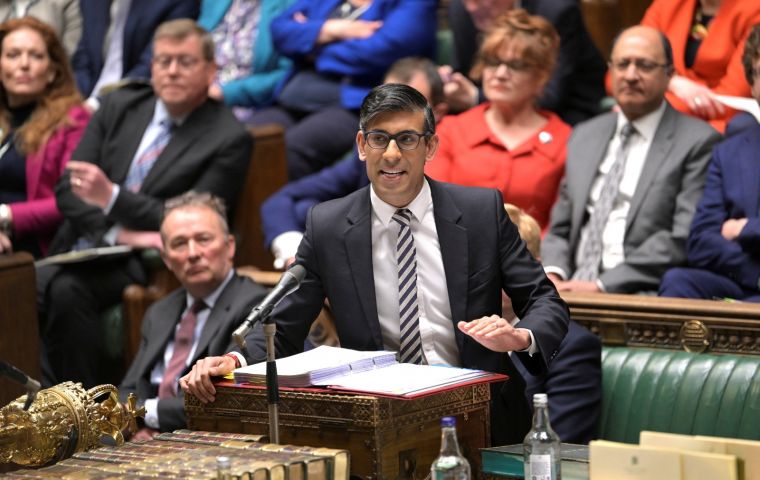MercoPress. South Atlantic News Agency
Brexit aftermath, UK Parliament takes initiative as to how and when scrapping EU legislation
 On Monday evening, the amendment to drop the sunset clause was passed by peers in the House of Lords
On Monday evening, the amendment to drop the sunset clause was passed by peers in the House of Lords The British government has suffered defeats in the House of Lords over plans to scrap certain EU laws by the end of the year, reports BBC. Peers backed an amendment which would give Parliament greater scrutiny over which rules should be ditched and also voted to give devolved governments, rather than Westminster ministers, the final say on whether EU rights should be kept.
Once the Lords has finished debating the Retained EU Law Bill, it will return to the House of Commons.
When the UK formally left the EU in 2020, EU laws that had previously applied in the UK were kept in place to maintain continuity and minimize disruption.
The Retained EU Law Bill, introduced to Parliament in September 2022, initially included a sunset clause, meaning the estimated 4,800 EU-era rules would automatically expired after 31 December - unless ministers had specifically decided to replace or retain them.
However, there were concerns this did not give departments enough time to review all the laws set to be axed, and last week, in a big change of policy, the government announced it would be ditching the December deadline.
The move infuriated some Conservative backbenchers but Business Secretary Kemi Badenoch said it provided “legal clarity”.
The government has produced a schedule for replacing 600 EU laws. Ms Badenoch has said the list is not “the limit of the government's ambition” and estimated that more than 2,000 EU rules will be repealed by the end of the year.
On Monday evening, the amendment to drop the sunset clause was passed by peers in the House of Lords, many of whom had previously criticized the deadline.
Liberal Democrat peer Lord Fox specifically praised minister Lord Callanan: “All through the grinding committee stage he stuck poker-faced to the party line, but then, seemingly, he sprang into action... and, using his not inconsiderable powers of persuasion on the secretary of state, he ensured that the whole government position flipped 180 degrees.”
However, despite welcoming the change, many peers continue to have other concerns about the bill - specifically about which bodies should be in charge of deciding whether laws are scrapped or retained.
Independent peer Lord Hope of Craighead's amendment proposed that laws destined to be scrapped should first be referred to a parliamentary committee.
The committee would have the power to trigger debates and votes in the Houses of Commons and Lords if it felt dropping certain rules would mean “significant change”.
His amendment was supported by former Tory minister and Brexit supporter Lord Hamilton of Epsom who said “Parliament has got to regain control of this process.”
Government minister Lord Callanan argued the amendment was unnecessary and said every piece of retained law set to be dropped had already been thoroughly reviewed.
However, the amendment was passed by 245 votes to 154.
The government was also defeated by 222 votes to 68 over a similar amendment from independent peer Lord Anderson which gives Parliament and the devolved administrations in Northern Ireland, Scotland and Wales the final decision on whether to keep retained EU rights.
Peers will continue to debate and amend the bill - after which it will go back to the House of Commons for MPs to either accept or reject the changes.




Top Comments
Disclaimer & comment rulesCommenting for this story is now closed.
If you have a Facebook account, become a fan and comment on our Facebook Page!